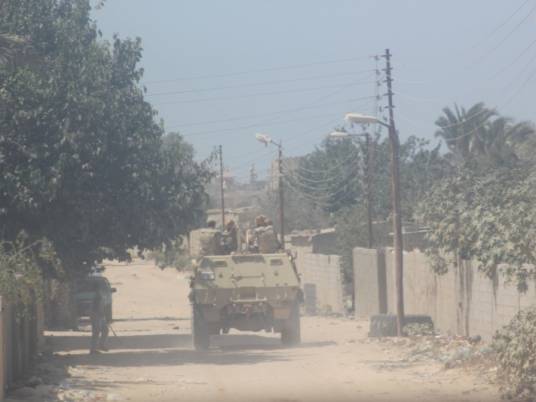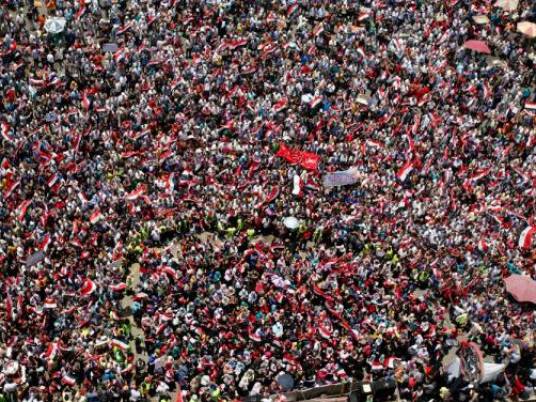One week after the first UN monitors arrived in Syria to oversee implementation of the peace plan negotiated by UN Special Envoy Kofi Annan, conditions on the ground have already made it irrelevant. What remains to be seen is how long it will take for the international community to acknowledge its failure and press ahead with its collective efforts to bring about a democratic transition in Syria. The US has much to gain by taking the lead in declaring the Annan plan stillborn, and charging the Assad regime with its speedy collapse.
Such a step will not come easily. Although few western or Arab officials held out much hope for the Annan plan, or took seriously the Assad regime's commitment to implementing it, once the plan took hold the inclination has been strong to give it more time to work, and to avoid taking the initiative in withdrawing support from the one diplomatic framework that has secured Russian and Chinese support in the UN Security Council. Yet the costs of inaction are high and growing by the day. Several hundred Syrians have been killed by regime forces in the period since the so-called "ceasefire" took effect on 12 April. On 17 April, more shells fell on Homs than on any previous day of the uprising. Continued support for the plan has already provoked questions about how deeply the Friends of Syria Group is committed to democratic transition in Syria, and how fully prepared is it to uphold the position that the Assad regime is illegitimate, and that Bashar al-Assad himself must go. The longer the friends lend cover to the Annan plan, the louder these questions will become.
If expectations for the plan have never been high, the Assad regime's behavior should be sufficient to overcome the impulse to give the Annan plan more time. Its disdain for the plan has been breathtaking, surprising even some hardened diplomats who are familiar with the long history of broken pledges from Damascus. Despite the Syrian government’s claims to have pulled forces back from major urban centers, satellite imagery confirms that it has done little more than move new units into new offensive positions. There are also reports of the increasing use of Syria's air force, including helicopter gunships, in attacks on civilian positions.
Nor has the regime shown any inclination to moderate its year-long campaign of repression. Not only has the civilian death toll continued to climb, but information flowing out of Syria reports waves of detentions and other punitive measures directed against protesters and opposition activists. Moreover, if the Syrian regime has lied systematically about its compliance with the pullback of forces and an end to the use of violence, it has done nothing at all to respond to the remaining points of the Annan plan, which include the release of political prisoners, free access to Syria for the media, and respecting the right of Syrians to protest peacefully. Mr. Annan himself has been oddly silent on the complete lack of Syrian response to these elements of his plan. All told, it is little wonder that the emir of Qatar, Hamad bin Khalifa al-Thani, predicted that the Annan plan had “only a 3 percent chance of success.”
While Russian officials accuse unnamed governments and “external forces” of seeking to undermine the Annan Plan — ignoring the Assad regime’s responsibility for its failure — the concern among the Syrian opposition and its supporters is just the opposite: that western governments have been drawn into an initiative that is not simply flawed, but dangerous; have failed to provide explicit benchmarks for assessing its implementation; and have not established a timetable that would make clear that support for the Annan plan is not open-ended. Rather, in what is seen as a misguided effort to persuade the Russian government to soften its support for the Assad regime, the west is viewed as having acquiesced to an initiative that compromises its core commitment to the regime’s removal, constrains its engagement with the opposition, and shifts the focus of global diplomacy away from forums like the Friends of Syria Group and toward the UN Security Council, where Russia’s willingness to serve as spoiler gives it veto power over western and Arab League initiatives. Whether these perceptions are accurate or not — and in Washington, at least, US officials insist that the Annan plan has not derailed its policy toward Syria — there is nonetheless a growing conviction that it is helping the Assad regime to reconsolidate its authority, has failed to constrain its indiscriminate use of violence, and should be acknowledged as a failure, sooner rather than later.
Fortunately, the Friends of Syria Group has alternatives to the Annan plan. These include implementation of the commitments made at the 2 April Friends of Syria meeting to expand support to the Syrian opposition, one element of which calls for a managed approach to the militarization of the Syrian uprising, as well as more extensive engagement with the internal opposition. They also include efforts to build international and NATO backing for defensive allied operations, such as the creation of a safe zone along Syria's northern border that would provide Turkey with the assurances it is seeking as a precondition for any such move. An additional element of this approach might include efforts to suppress Syrian air power. All of these strategies are far more likely to be effective in pressuring the Assad regime, and in accelerating efforts to secure a negotiated political transition in Syria, than the fatally flawed plan put forward by the UN special envoy.
Steven Heydemann is a senior advisor for the Middle East Initiatives at the US Institute of Peace




